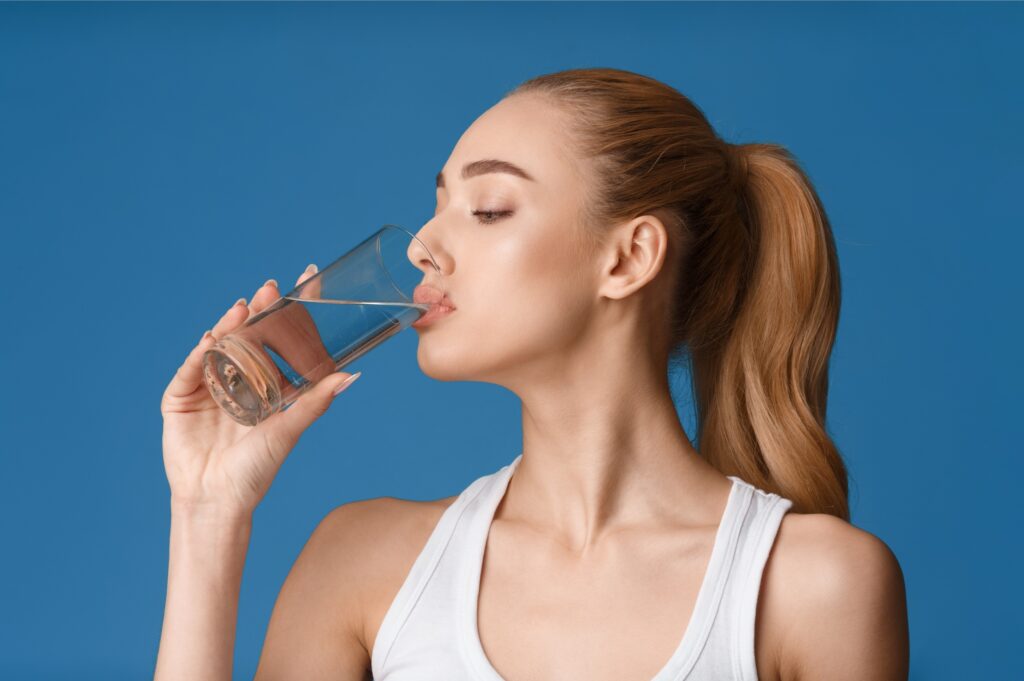Exploring the Evidence of Drinking Water Before Meals Help with Weight Loss?
The suggestion to “drink more water” is frequently encountered by individuals pursuing weight management. This advice is often more specific: “Drink a full glass of water before each meal.” While intuitively appealing, it raises questions about effectiveness and underlying evidence. This article examines the theories supporting water’s role in weight loss and critically evaluates existing research.
Common Theories and Supporting Evidence:
1. Satiety and Reduced Intake:
The notion revolves around filling the stomach with water before meals to trigger fullness signals and decrease subsequent food intake.
Evidence:
Some small, short-term studies lend support. Older adults who consumed a full glass of water pre-meal exhibited lower food intake than those who didn’t. Another study observed individuals following a low-calorie diet with additional pre-meal water consumption experiencing reduced appetite and more significant weight loss over 12 weeks compared to a similar diet without extra water. However, neither study assessed the effects of long-term weight loss.
2. Thermogenesis and Calorie Burning:
This theory proposes that the body expends energy (thermogenesis) to raise ingested water to body temperature, potentially offsetting meal calories.
Evidence:
While older studies offered partial support, recent research found no significant evidence of substantial calorie burning due to water consumption, casting doubt on this explanation.
3. Mistaken Thirst for Hunger:
This theory suggests that thirst can be misinterpreted as hunger, leading individuals to seek food unnecessarily. Drinking water can address this, potentially promoting weight loss.
Evidence:
The complex and age-dependent regulation of thirst and hunger makes substantiating this proposition challenging. Limited human studies supported the claim of mistaking thirst for hunger or associating it with water-induced weight loss.
Potential Benefits Beyond Weight Loss:
Exercise Performance Enhancement:
Proper hydration improves exercise capacity, potentially contributing to weight loss through increased calorie expenditure. However, evidence specifically addressing hydration’s effect on exercise-related weight loss remains limited for the general population.
Reduced Calorie Intake from Beverages:
Substituting high-calorie beverages (sugary sodas, fruit juices, alcohol) with water can contribute to weight loss over time. Substituting water for calorie-rich drinks likely reduces overall calorie intake, indirectly supporting this theory.
Fat Metabolism:
While some animal studies suggest dehydration hinders fat breakdown, compelling human studies demonstrating water’s role in enhanced fat burning for weight reduction are currently lacking.
Conclusion:
Whether increasing water intake by drinking before or during meals aids in weight loss remains open-ended. While some studies offer suggestive evidence, most are short-term, small-scale, or rely on animal data. Additionally, positive studies generally reported modest benefits.
Ultimately, if consuming water before meals feel beneficial, there are minimal downsides (excluding the potential challenge of forcing fluids when not specifically thirsty). However, the evidence suggests the theory behind this practice may hold little water.
MedPro Disposal Call to Action:
MedPro Disposal promotes healthy communities and responsible medical waste management. Maintaining hydration levels and considering your choices’ impact on overall well-being is essential.



